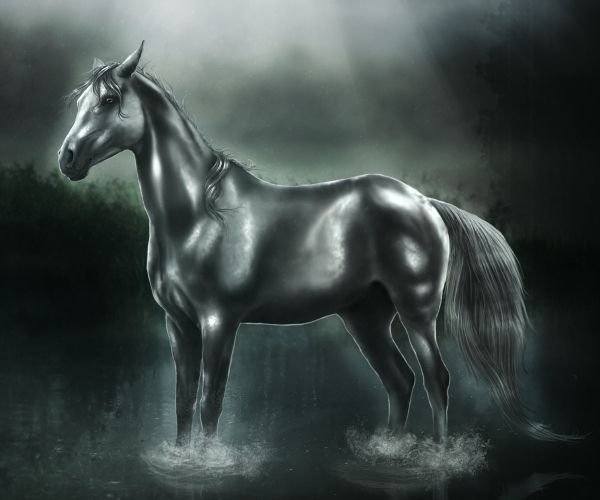
She wields no force of destruction other than herself.
This woman is a queen, their raven-touched leader, who commands cities to be burned and the earth sown with salt. Cordis reigns only over herself, and even that she does poorly – she controls the lightning, now, encapsulates it about her skin like she is a goddess thrown down from the heavens, but she has no control over the other magic, the things (raven feathers, perhaps) that flicker across her skin.
She also has only the most frayed control over her darkest heart, the one first forged in His lair and refined by the years, by the cold cycle of loving and leaving (and finally, just leaving and leaving). A blade honed against a whetstone, but it is one she should not yield, for with the blade comes the sentence, the one He first whispered filthy-hot in her ear: it is a pleasure to burn.
To burn things. To burn them.
To act as monsters do.
The ravens tell me you are interesting, says the mare. She wants an explanation. Cordis wonders why the color, why the lightning isn’t enough. Wonders what the ravens know. What they saw.
(What would it have looked like, to them, her crooning her boy close, telling him ‘I have a secret,’ burning him alive.)
(Alive. He is alive. She thinks. Hopes.)
Once, she might have felt fear, felt shame, felt dread – and ah, she does, all these things flood into her like a hot flush of color to the cheeks. But alongside them is another thought: she would burn.
She is not a monster but she has a monster’s confidence that she could destroy this woman, destroy the murder she carries with her – she knows so little of her, but she knows so much about the lightning and the song it sings against her skin.
“Look at me,” she says, “molten silver and laced in lightning. I suppose that’s interesting enough, to a raven.”
she said it was a mistake to let them burn her at the stake
Cordis
(and she learned a lesson back there in the flames)
